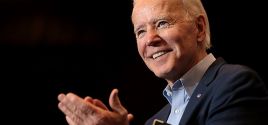NBER: Recession ended last Juneby Douglas French, Mises Economics BlogDoug French Sep. 21, 2010 |
Popular 
Biden Commutes Sentences of 37 of 40 Federal Death Row Inmates - Excludes Robert Bowers, Dylann Roof

U.S. 'Shoots Down Own Jet' Over Red Sea in 'Friendly Fire Incident'

Ohio Senate Passes Bill Aimed at Outlawing Criticism of Israel, Criminalizing Gospel

Putin Accuses 'Ethnic Jews' of Tearing Russian Orthodox Church Apart

Saudi National Rams Car Into Germans at Christmas Market in Suspected Terrorist Attack [UPDATED 2X]
 Just in case you hadn’t realized it or that it doesn’t seem like it, according to the National Bureau of Economic Research, the recession ended in June of 2009. You see they got together and had a conference call yesterday and decided that last June the U.S. economy turned positive. Never mind that the U.3 and U.6 unemployment rates were 9.4% and 16.4%, respectively, in May of 2009, supposedly the last month of the recession while last month’s U.3 and U.6 stood at 9.6% and 16.7%. Real Private Fixed Investment continues to sink. Consumer and business bankruptcy filings continue to climb. One in 8 people in America are receiving food stamps according to Reuters. And in three-quarters of U.S. cities foreclosure filings are on the rise. According to a CNBC poll, 90% of Americans are worried about the economy. There is talk of another stimulus package at the White House and more quantitative easing from the Fed. Evidently, the wise ones in Washington weren’t on the NBER conference call. The CNBC poll also revealed, “A clear majority of Americans, 55 percent, believe that the president’s economic plans have made things worse, running up the deficit without ending the recession or creating new jobs. “Only 42 percent say the president’s policies have helped avert a worse crisis and are laying the groundwork for further growth.” The folks at NBER must know something the rest of us don’t. Even rich folks are unhappy with the way things are going. They first took a hit on their stock portfolios, then their real estate holdings and now the President would like more tax money from them to pay for the continued Keynesian stimulus programs that have lifted us out of the financial meltdown and the recession (except no one realizes it). Paul Krugman has some stern words for “the world’s luckiest people,” who are “wallowing in self-pity and self-righteousness” and “have a belligerent sense of entitlement has taken hold: it's their money, and they have the right to keep it.” In related news, the Japanese Prime Minister announced yet another “$11 billion stimulus plan designed to promote job creation, coax shoppers back into stores, and stem the surge in the value of the yen,” and the Bank of Japan intervened lowering the value of the yen “to protect the economy.” |



